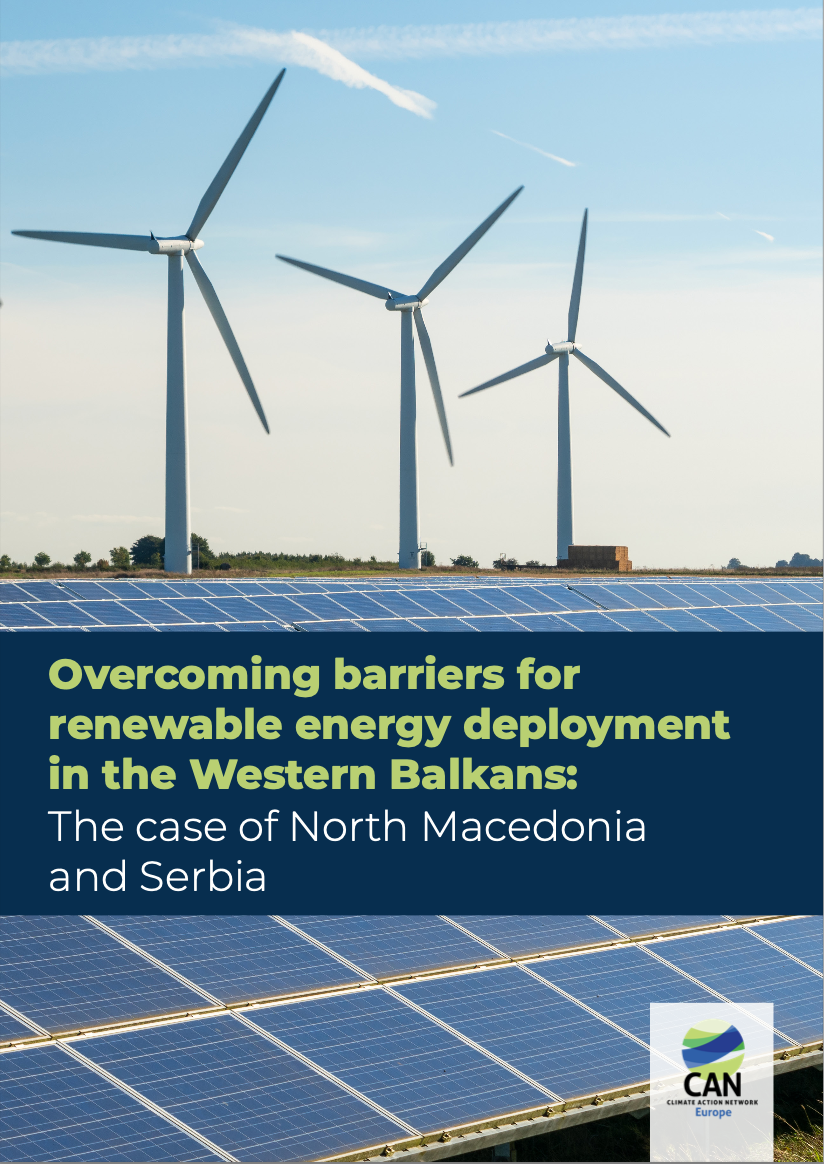BRUSSELS, 23 January 2024- This morning, Climate Action Network (CAN) Europe released its Study on Barriers for Deployment of Renewable Energy Sources (RES) in the Western Balkans, with a focus on the cases of North Macedonia and Serbia
The study, carried out by eclareon and commissioned by CAN Europe, is based on an analysis of the factors that are currently hindering the deployment of RES in the two countries. By analysing the political, economic and regulatory frameworks, the study offers a comprehensive overview of the challenges and opportunities faced by North Macedonia and Serbia in developing key strategies that envisage decarbonisation relying on the increase of renewables. Furthermore, the study includes a set of policy recommendations aiming at overcoming the identified barriers, paving the way for a just transition to sustainable, resilient and efficient energy systems in both countries.
The study highlights that in both North Macedonia and Serbia, while progress has been made in establishing institutional and legislative frameworks aimed at boosting the deployment of RES, challenges persist. These challenges include a lack of political will, intricate administrative processes, and insufficient governance planning within the energy sector, all ultimately contributing in hindering an efficient deployment of renewable sources in both countries.
During the presentation, Program Coordinator at Eko Svest, Elena Nikolovska, said: “Meaningful public participation and transparency in the energy transformation process is key to secure a just process that takes into account the specific needs of the communities in coal regions and target specific problems to RES deployment only local communities are aware of ”.
The presentation was followed by a discussion, where keynote speakers Ana Stojilovska and Marko Kolovrat presented current data and figures related to the pursuit of RES projects in both countries and discussed RES deployment opportunities in both North Macedonia and Serbia.
CAN Europe Director, Chiara Martinelli, emphasised the importance and high potential of RES deployment in North Macedonia and Serbia highlighting the need to streamline processes and ensure a seamless grid integration of the new capacities: “Our study reveals that, though there is a pressing need for reform, there lies a vast, untapped potential. Overcoming barriers to RES deployment is a readily achievable opportunity, leading to more efficient, renewable-based economies and fostering closer ties to the EU for the region. Recognising and overcoming these obstacles is a leap toward an efficient, renewable and resilient future, reducing dependence on fossil fuels domestically and abroad”.
Read more about the key findings of the Study here
Contacts
Eleonora Allena
Communication Coordinator for the Western Balkans and Turkey
eleonora.allena@caneurope.org




